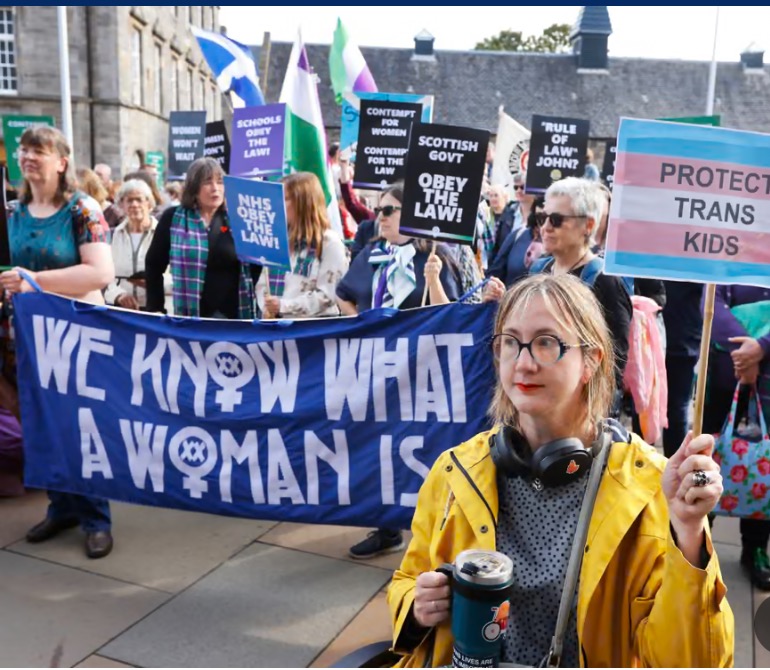The UK’s equalities watchdog has submitted formal guidance on how institutions should respond to a landmark Supreme Court judgment on transgender rights, warning that it will be difficult for many organisations to translate the ruling into workable policies.
The Equality and Human Rights Commission (EHRC) handed the guidance to Bridget Phillipson, the minister for women and equalities and education secretary, who must now decide whether to adopt it.
Sources close to the EHRC said the guidance, drawn up under outgoing chair Kishwer Falkner, is expected to mirror interim advice published in April.
That advice alarmed transgender groups, as it suggested the Supreme Court ruling defining a woman in law as a biological female meant trans people could be barred from using toilets of either their lived gender or their birth sex, effectively excluding them from public facilities.
The interim advice also said organisations such as hospitals and sports clubs could request to see a birth certificate if there were genuine concerns about a person’s sex.
Speaking on BBC Radio Today programme, Falkner admitted that putting the ruling into practice would be far from straightforward.
“It’s going to be difficult for service providers to adapt a ruling which is quite black and white into practical steps according to their own circumstances,” she said.
“That’s why we’ve always emphasised they should take their own advice as well as following our code.”
The EHRC guidance carries statutory weight and comes after a six-week consultation, extended from two weeks following pressure from MPs. More than 50,000 responses were received.
Phillipson now faces a politically fraught decision on whether to accept the guidance. One official described the document as hugely complicated,and no timetable has been set for a conclusion.
When the Supreme Court delivered its ruling in April, Keir Starmer welcomed it as offering real clarity on a contentious issue.
But some Labour MPs and campaign groups have raised concerns that a rigid interpretation could have severe consequences for trans people’s everyday lives.
Jude Guaitamacchi, founder of the Trans+ Solidarity Alliance, accused the EHRC of rushing its consultation and warned the guidance risked introducing “a trans bathroom ban.”
They added: “It’s up to the government what happens next. Bridget Phillipson could fix this tomorrow. Waving this through would be Labour’s Section 28 moment and define their legacy on LGBT+ rights.”



